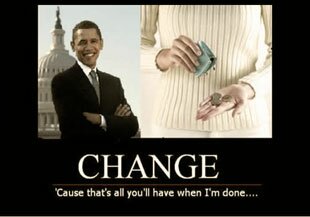(Hamsayeh.Net) - Most Americans want a sea of change in U.S. – Iran relations without any preconditions. Ivan Eland, an American journalist in an article publish on Antiwar online, explains some of the changes needed to improve the relation.
He writes: One election in Iran will not significantly change U.S.-Iran relations — only a change in U.S. thinking and policy will do so. Historically, the U.S. government, under both Republican and Democratic presidents, has painted relatively poor third world regimes that don’t toe the empire’s line as "evil" — Moammar El-Gadhafi’s Libya in the 1980s, Saddam Hussein’s Iraq in the 1990s, North Korea’s Hermit Kingdom since the 1950s, and Islamist Iran since the Iranian Revolution in 1978.
Most of these faraway lands haven’t provided — or will be unlikely to provide — much of an actual threat to U.S. territory or Americans in it. But during and after the demise of the Soviet Union, to justify the bloated U.S. world-girdling empire and bloated military establishment, these minor autocratic regimes had to be demonized and their threats elevated.
The problem is the U.S. then begins to believe its own overheated rhetoric and decides that the threat from these pathetic countries requires drastic military action. In 1950, after North Korea invaded South Korea — then a poor non-strategic country (believe it or not, although now much wealthier, it’s still not very strategic to the United States) that the U.S. Joint Chiefs of Staff believed would come under the natural influence of the nearby Soviet Union — the United States panicked, sent troops to South Korea, and became involved in a stalemated war.
In the 1980s, needing an enemy to justify big increases in the U.S. defense budget, Ronald Reagan began harassing Libya, which only resulted in blowback terrorist attacks against U.S. targets. Of course, the U.S. build up of the Saddam monster had been long forgotten after the monster turned ugly and invaded the tiny nation of Kuwait. Although even if Saddam had taken Saudi Arabia, oil would have flowed because the commodity is valuable, Saddam was in dire financial straits, and he would have had to sell it.
After the United States severely crippled the much smaller and poorer Iraq in the first Gulf War — removing any remaining hyped threat to Persian Gulf oil — the U.S. just couldn’t restrain itself from taking advantage of 9/11 to get rid of the wicked Saddam once and for all.
Eland argues that the U.S. has a habit of falling into some self-imposed or self-created actions all on its own. For example, “After the U.S. demonizes a country’s rulers, it then regularly generates excessive hopes for change in those countries. With President Obama’s overture to Iran and the Iranian election, naive hopes have already begun to set in of genuine change in Iran and in its relations with the United States. The real problem is that even though Obama wants to negotiate with Iran, he still shares Bush’s unrealistic concept of where he wants Iran to go.” Says Eland.
According to the writer Iran and U.S. both share many common grounds to cooperate with each other on issues facing the region. On the nuclear issue, Eland says, “Iran is unlikely to give up its nuclear program, because the entire political spectrum — from fundamentalists to reformers — supports it. Although Iran is moving toward obtaining the ability to make a nuclear weapon and a long-range missile that could deliver it as far as the United States, it still has a way to go and also has to engineer the warhead so that it is small enough to fit on the missile.
Even if Iran accomplishes all of those objectives, it would still have only a few measly warheads for any attack on the United States, which could be deterred with the thousands of warheads in the most powerful nuclear arsenal in the world.” Also the fear of proliferation should be set aside because Iran has much to fear by nuclear proliferation like most countries do.
In conclusion, “the United States could get along better with Iran — no matter who is president in the United States or Iran — if U.S. expectations for change in Iran were more realistic and the U.S. government’s threat perceptions of Iran were diminished through rational thought.” Says Eland.


